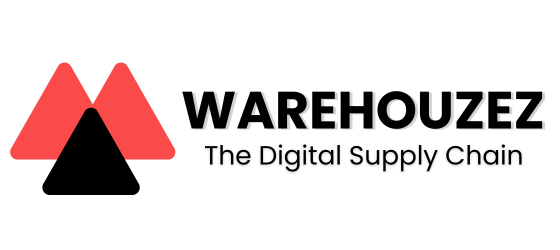growth accelerated in 2022
Warehouse Management Systems (WMS): Growth Accelerated in 2022
In essence, the WMS solution providers have witnessed massive growth. This above-trend rise is primarily due to longer-term contributing factors, with a spike in pent-up demand from COVID-19-related uncertainty in 2020 completing the picture. A wide range of factors are now driving the market growth as well as the shifting needs and priorities of WMS software users.
Application-based sectors such as cosmetics and skincare, healthcare, and retail are projected to propel the growth of warehouse management systems (WMS) to fulfill the customer demands. According to the research findings, the worldwide warehouse management system market is projected to expand with a CAGR of 15% from USD 2.74 billion in 2020 to USD 11.08 billion by 2030, within a forecast timeframe of 2021-2030. As a result of technology advancements, digitization has spread throughout all supply chain processes.
Industry Definition
Warehouses are at the core of industrial, logistics, and supply chain operations. They store literally everything, from raw materials to finished products. To streamline, digitalize, and expedite the full process of warehouse management, where the majority of the tasks are carried out manually, the concept of a warehouse management system is brought into the picture.
The WMS software facilitates the most efficient warehouse management operations, and the flow of goods across warehouses. It is a type of software that helps in controlling, organizing, and managing logistics warehouse operations. It reduces delivery lead times and errors when processing orders. WMS solutions are specifically designed to meet the requirements of a worldwide supply chain. Retailers want increased efficiency and productivity while deploying WMS, which improves supplier–customer interactions. This has resulted in an increase in demand over time, contributing to market growth.
Key Benefits
Adopting a WMS software for your business can be incredibly advantageous because it has the ability to integrate with inventory management, order fulfillment, and accounting to create a more effective workflow.
Here are the benefits of implementing WMS into your business:
Lowering of Operational Costs
One of the major benefits of implementing a warehouse management system is that it can significantly cut your operational costs. It can also substantially reduce processing costs.
Inventory Visibility
It helps to increase inventory visibility, as this software delivers real-time data through barcoding, batch numbers, serial numbers, and other means. It further helps in demand forecasting.
Customer Satisfaction
Customers can benefit from such a technological system since it improves order fulfilment, reduces product inaccuracies, expedites the delivery process and so on. With such a software system, your company's reputation will undoubtedly improve among your clients.
Market Outlook
The Indian Warehouse Management System industry is much newer than that of many other nations. Nonetheless, Indian enterprises are catching up when it comes to WMS adoption, with logistics, manufacturing, and retail companies leading the way.
One of the key driving forces of the WMS market is the third-party logistics sector. In 2022, the 3PL firms are likely to dominate the warehouse management segment. The need for effective order management and increased outsourcing of logistics warehouse, distribution, and transportation operations is spurring the demand for WMS solutions. Furthermore, the warehousing companies in India are increasingly adopting software solutions to simplify and streamline their operations. To illustrate, the warehousing sector in Hyderabad is booming, and there is growing demand for warehouse in Hyderabad. To cater to this increased demand, warehouses and logistics centers in this city are employing state-of-the-art technologies, tools, and software, particularly warehouse management systems.
Growth Acceleration
Following the covid era, the requirement for warehousing services has risen due to increased demand for a range of products. To meet the rising demand, corporations are starting new warehouses in various cities across the country. For instance, Chennai is emerging as a prominent warehousing hub in the country. It is a highly industrialized city that is rapidly expanding, creating a huge demand for warehouse in Chennai. Furthermore, warehouse management systems will become all the more popular among e-commerce and third-party logistics companies in 2022 and the years ahead. WMS software demand is primarily being driven by a growing number of cloud-based technology solutions, increased awareness of WMS software across small and mid-sized businesses, and the globalization of supply chain networks. Another point of interest is the integration of advanced technologies such as warehouse automation and robotics.
Wrapping Up
Undeniably, this market segment is expected to grow exponentially, with cloud-based WMS solutions becoming more popular as a credible alternative to standalone warehouse management systems. A well-designed warehouse management software is absolutely essential if you want to quickly scale your business and increase profitability.



